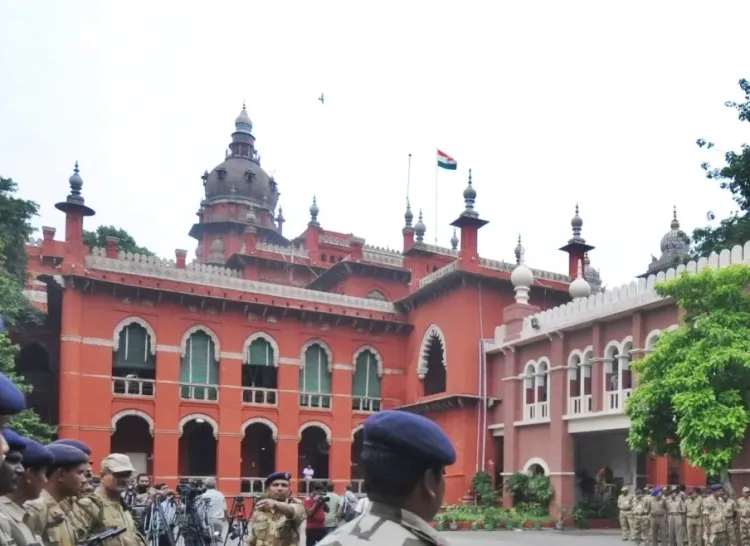Nilgiri Business Community and Taxi Drivers to Protest E-Pass System on April 2

Synopsis
Key Takeaways
- Protest on April 2 against e-pass system.
- New court ruling limits tourist vehicles.
- Concerns over vehicle counts including locals.
- High Court emphasizes sustainable vehicles.
- Parking issues at foothills remain unclear.
Chennai, April 1 (NationPress) Business owners, merchants, taxi drivers, and operators of hotels and restaurants in Tamil Nadu’s Nilgiris district have announced their participation in a district-wide bandh scheduled for April 2, in opposition to the recently introduced e-pass system that limits the number of tourist vehicles permitted in the hills.
The protest is organized by the Nilgiris District Traders Association in light of a Madras High Court ruling that took effect on April 1 and will persist until June 30.
This ruling restricts the number of tourist vehicles allowed into the Nilgiris and Kodaikanal to 6,000 on weekdays and 8,000 on weekends.
While vehicles for medical emergencies, government buses, goods transport, and district-registered vehicles are exempt, other vehicles must acquire e-passes for entry.
The High Court has also underscored the importance of prioritizing vehicles utilizing sustainable and non-polluting fuels during the e-pass allocation.
Dindigul Collector S. Saravanan mentioned that the Chief Secretary recently led a meeting to finalize the implementation strategy.
He pointed out that last year, about 15 percent of the e-passes issued were canceled, impacting genuine tourists who wished to visit the hill stations.
To mitigate this issue, the administration intends to maintain a buffer of e-passes to accommodate potential cancellations.
Additional strategies involve rigorous monitoring of bulk bookings and e-pass verifications at the foothills to alleviate traffic congestion, especially in high-traffic zones like Silver Cascade.
Although some initial challenges are anticipated during the first 15 days, officials have assured that these issues will be promptly addressed.
However, uncertainty persists regarding the breakdown of the permitted 6,000–8,000 vehicles. The district administration has not yet specified the allocation of passes for private buses, mini-buses, vans, cars, or two-wheelers.
The High Court has also instructed the Nilgiris administration to establish parking zones at the foothills for private vehicles, with Electric Vehicles transporting tourists to popular areas.
Yet, it remains unclear whether these parking facilities are operational. The leader of the Hotel and Restaurant Association, Francis KM, stated that while hotels will remain operational due to existing reservations, the association will support the bandh as a principle.
He expressed concerns about counting local residents’ vehicles in the tourist vehicle quota.
“Many families in the Nilgiris own cars registered in other districts. If these are included in the tourist vehicle count, the number of e-passes for actual visitors will be diminished,” Francis stated.
He added that the District Collector has pledged to relay these concerns to the state government.
Meanwhile, similar frustration is rising in Kodaikanal, where stakeholders argue that the vehicle cap — 4,000 on weekdays and 6,000 on weekends — may be unrealistic.
Critics highlight that while the cap seems based on the number of registered hotels, cottages, and homestays (approximately 7,000), numerous unlicensed accommodations have not been considered.
As April 2 draws near, the hills are preparing for a potentially tense conflict between local stakeholders and authorities over the ramifications of the new e-pass system.








